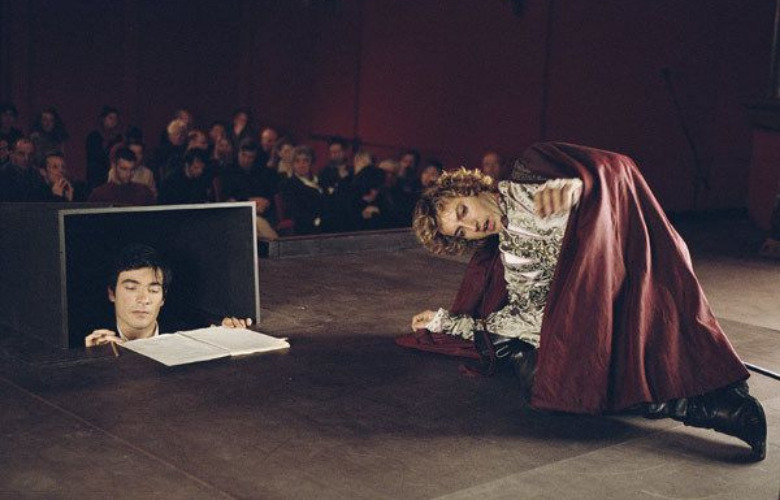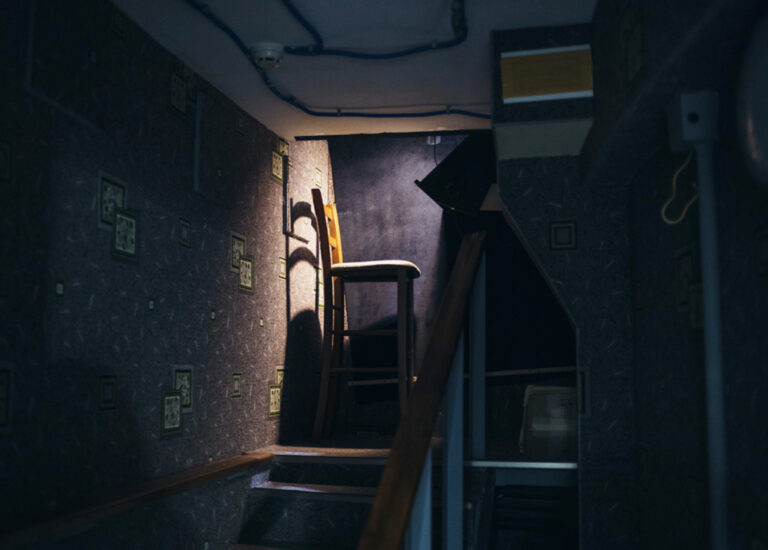
Have you ever wondered why there is a box sitting stage left, or center stage, downstage, in most theatre venues and opera houses? In it, with a view onto the entire stage, yet hidden from you, is a person called the prompter who helps the performers onstage if they have forgotten a line or a cue. Nowadays this profession has become increasingly absorbed by the role of the stage manager, who, in the wings, as well as from the booth, keeps an eye on things and also lends a hand whenever possible.
In the old days, every theatre and opera house had a prompter. It was an important post, albeit invisible, where the prompter was the one who kept on top of everything throughout the performance and helped when a performer had a momentary lapse of memory.
Be that concerning their lines, or they even had forgotten their position at that very moment during the performance.
In many opera houses, especially in Central Europe, the prompter still exists. Just recently, when I went to the opera in Zurich, the director even shook hands with the prompter during bows. Which was hilarious because all you could see was an arm suddenly coming out of nowhere.
It depends a bit on where you are in the world and how traditional the venue you are entering is in their backstage organization, but nowadays you’ll often find that the prompter has disappeared. The prompt box will be either empty or it won’t be there anymore at all.
Because many of the earlier duties of the prompter are now taken care of by the stage manager, who will have a copy of the script called the prompt book.
This is the most definitive version of the script for any one performance, and will contain details of all cues, with their precise timings with respect to the action on stage.
Based on the prompt book the prompt, or nowadays the deputy stage manager can direct lighting, sound, flying effects and scene changes during a show.
The prompt book also often contains blocking notes, so that the prompt is always aware of the intended positions and movements of all the actors on stage at any given time.
In some professional and high-quality community theatre productions, the prompt is never used during a performance to instruct actors if they forget a line or movement, only during a rehearsal.
If prompting is absolutely necessary during a performance, it is usually done very quietly by another actor on-stage.
Historically, the prompt corner was located at stage left.
Prompt side (abbreviated to PS) and opposite prompt (abbreviated to OP, sometimes called off prompt) are widely used terms for stage left and stage right.
Some theatres choose to install the prompt corner in a discrete area of the auditorium. Certain theatres which locate their prompt corner on stage right would inform cast and crew that they were operating on a “bastard” prompt system.
In opera houses, the prompt box is traditionally located downstage centre.
In Elizabethan theatre the function of prompting was filled by the Book-Holder, who was also in charge of props and calls.
Nowadays, when a deputy stage manager calls the show in the UK, the position is thus still referred to as “to be on the book.”
In 2019, The Theatre Times published a fascinating article about the life of a prompter in Moscow’s Maly Theatre. One of the few theatres in the Russian capital which still uses prompters.
In the article was what I find to be a beautifully poetic definition of what it means to be a prompter:
“The actors don’t have to turn their heads in different directions looking for Andreyeva’s desk backstage. She very well knows who needs help and at what moment. The Russian word for “prompter” – suflyor – comes from the French souffler, meaning “to breathe” or “to blow.” Thus, a prompter is someone who lightly but precisely blows words in an actor’s ear. At the same time, the spectators are unaware that anything is going on.”

I highly recommend you take a look at the article in The Theatre Times now, after finishing this one. You can find their article here. And it will give you a very personal look into a fascinating profession which will unfortunately soon be entirely extinct.
Actor, Director, and Lecturer in Hong Kong: Billy Sy
The House of Dancing Water… Remembering a Masterpiece


Liam Klenk was born in Central Europe and has since lived on four continents. Liam has always been engaged in creative pursuits, ranging from photography and graphic design, to writing short stories and poetry, to working in theatre and shows. In 2016, Liam published his first book and memoir, 'Paralian'.
Read Full Profile© 2021 TheatreArtLife. All rights reserved.

Thank you so much for reading, but you have now reached your free article limit for this month.
Our contributors are currently writing more articles for you to enjoy.
To keep reading, all you have to do is become a subscriber and then you can read unlimited articles anytime.
Your investment will help us continue to ignite connections across the globe in live entertainment and build this community for industry professionals.